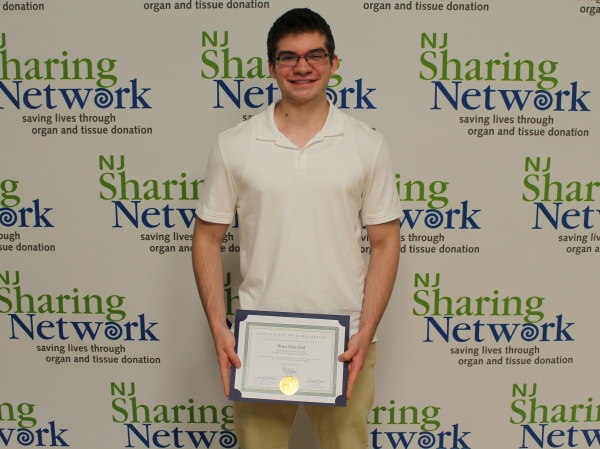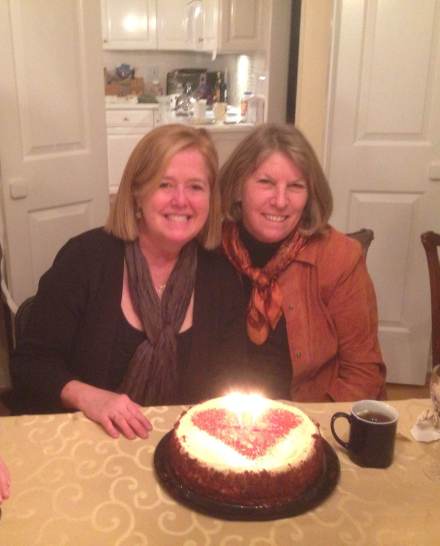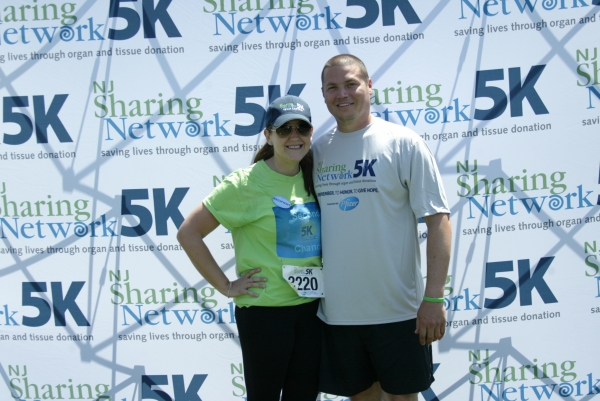Like most people I have heard of organ and tissue donation, but never really knew much about it. I knew the concept, but never understood how great of an impact it had on peoples’ lives. However, that all changed in December 2012, when at the age of 16 I found myself in need of a cornea donor in hopes of saving my vision in my left eye.
 |
| Brian Mansfield, Awardee of the 2014-2015 Benjamin R. Chirls Scholarship |
At the end of my sophomore year everything was going great. I was playing lacrosse, doing well in school, having fun with my friends, and being a kid, but then everything changed in the blink of an eye. In May 2012, I contracted Acanthamoeba Keratitis in my left eye. It is a very rare and serious eye disease that affects only one in two million, and can lead to blindness or loss of an eye. In my case, I suffered from vision loss, excessive tearing, swelling, pain, eye spasms, and light sensitivity so severe I couldn’t even tolerate the light from a cell phone. I had to stop all my activities, including school because of these symptoms. Over the summer I was restricted to a pitch black basement due to the light sensitivity, while at the same time undergoing numerous different treatments, and visiting the doctor’s office three times a week in New York City as I needed to be closely monitored. My condition only worsened and despite suffering from these symptoms I attempted to go back to school the following fall for my junior year.
School was very difficult as I faced numerous challenges because of my condition. I couldn’t look at the board, was still in constant pain, and was frequently absent due to my illness, which led me to be fall behind and play catch up in class. I was able to push through these obstacles until November when I had to stop going to school as I underwent an unsuccessful experimental surgery called Collagen Cross Linking. The surgery worsened my condition and I required an emergency corneal transplant or risk losing my left eye. The transplant was initially successful and my doctors were optimistic, until I started to experience unexplainable and unexpected complications two weeks after the surgery. My symptoms returned, and I was again relegated to the pitch black basement. Miraculously my condition started improving in March, and despite still suffering from severe light sensitivity I requested home instruction.
Through it all, school was always a top priority for me, and despite all these challenges, I finished my junior year on time while receiving straight A’s. I continued to improve over the next several months, and eventually the light sensitivity improved enough to the point where only natural light bothered my eye, and I am now only suffering from swelling in my eyelid. I did go back to school this fall for my senior year, but am limited in my activities due to the stitches that are in my eye. I can no longer play sports, swim, or do pretty much any other physical activity, until the stitches are removed, but my doctors plan on keeping them in indefinitely.
My doctors are also considering another surgery in December to resolve the remaining symptoms. I am however much better than I was 2 years ago, and am looking forward to attending the University of Richmond next fall.
My involvement with NJ Sharing Network began about six months after my transplant when my complications subsided enough to allow me to leave the house, and I was able to participate in my first SK event along with my family. It was a very emotional experience for all of us, especially for me. During the walk I met families that donated the organs of their loves ones and was inspired by their stories and how much joy it brought them to know that they were helping others and honoring the memories of their loved ones. Also, when I walked with donor recipients like myself, I also realized that I wasn’t alone and was now bonded with so many people who shared my experience. Recently, I completed my orientation and training to serve as a Volunteer Ambassador for NJ Sharing Network.
I understand how important it is to raise money and participate in SK events and various fundraisers, but due to the shortage of organ and tissue donors, I feel that awareness is just as important, perhaps even more so. That is why I feel that the best way that I can help is to increase donor awareness by being a “Walking Advertisement ” for this worthy cause, which is so very important to me and to so many others. I feel that most people don’t fully understand this cause until they make a personal connection with someone who has experienced it, whether it be a family member, or a complete stranger. That’s why I am committed to share my story with others to make a personal connection with as many people as I can to inform them about organ and tissue donor awareness.
When I was finally able to return to high school this year, I feel that I opened the eyes of so many students and teachers about donating their organs and tissue to help save or improve the life of someone. Now, as I am beginning college in the fall, I have a whole new group of people that I can make inspire to become donors. As I said, being a “Walking Advertisement’ ‘ is a commitment that I can continue throughout my life time.
I cannot think of a better way to educate others and hopefully, increase the number of donors which improve and save the lives of many people. Currently, there are approximately 5,000 NJ residents and more than 120,000 overall on waiting lists. I was given a very generous gift in my donor cornea and want as many people as possible to have the same opportunity for a second chance. I feel that it is not only my duty, but my privilege to spread the word about organ and tissue donation. I know that I can make a difference and that is what I plan to do.


